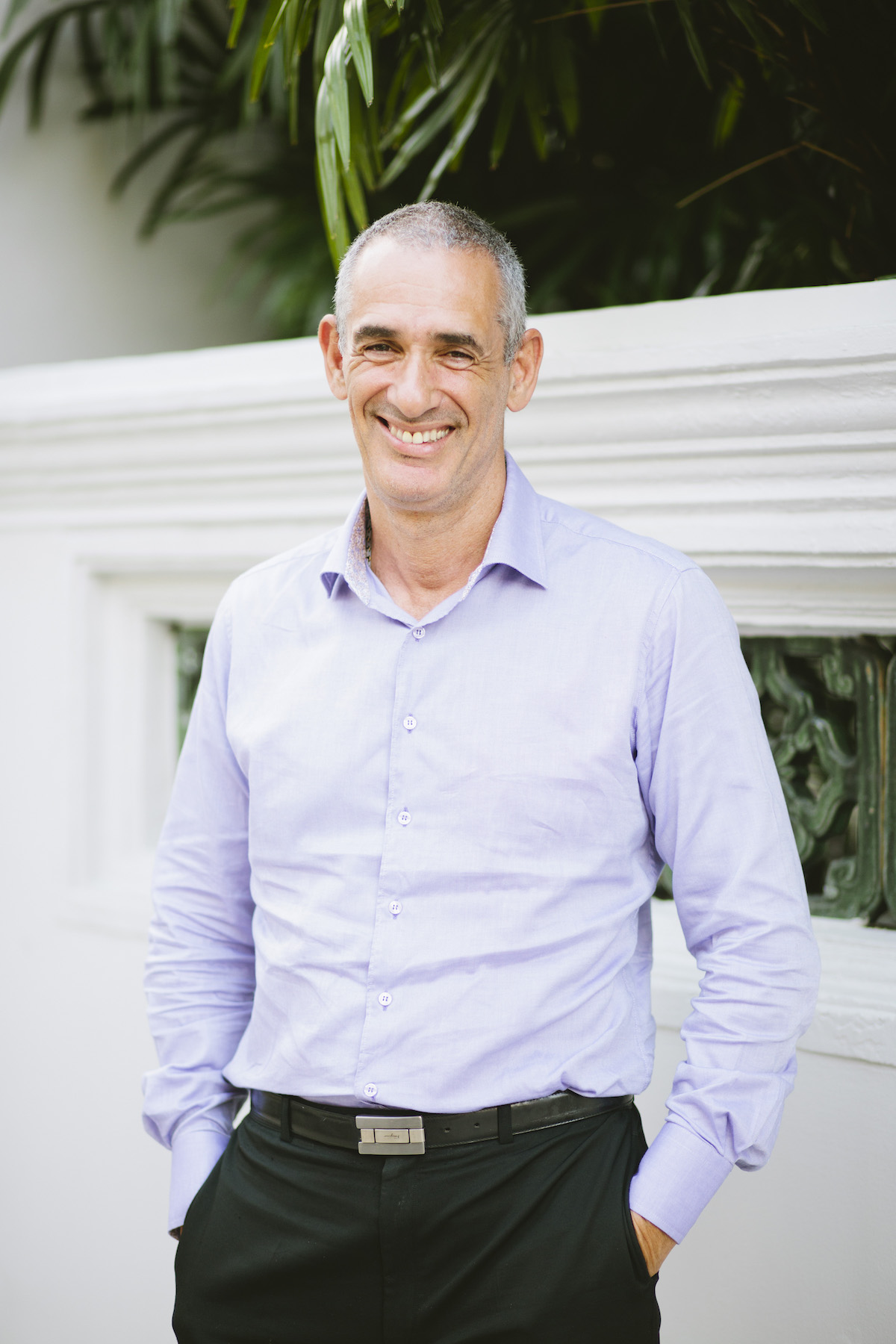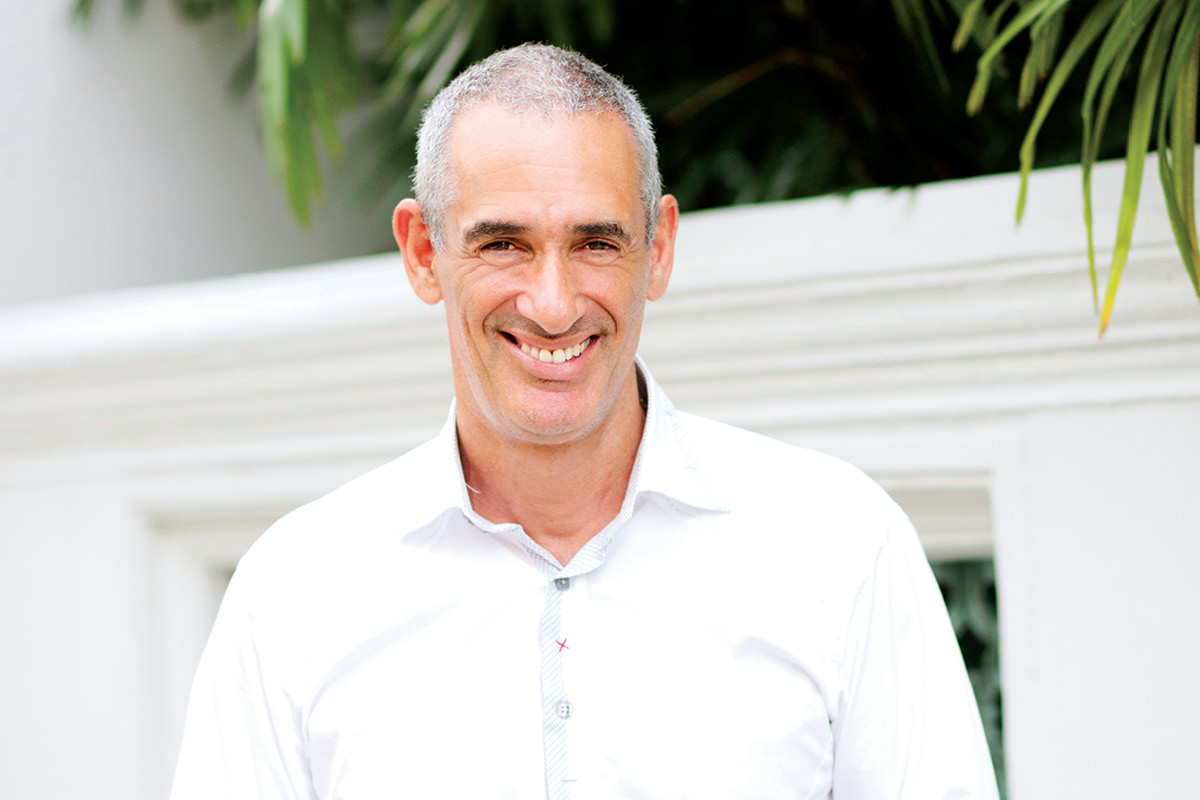Long before he began his role as President Asia for Ultra Clean Technology (UCT), Lavi Lev was a leader in innovation. Having completed his studies at the Israel Institute of Technology (Technion) and a five-year stint with National Semiconductor, Lavi left his homeland and headed for the world’s most famous innovation hub: Silicon Valley. “I started my career in the chip-design industry,” he says.
“I worked for companies like Intel, where I led the circuit design for the first Pentium microprocessor; and Silicon Graphics and Sun Microprocessors, where I designed the first UltraSparc microprocessor. I was also involved in the design of the first Nintendo and Sony PlayStation gaming consoles’ processors.”
After that, Lavi moved to computer-aided design, taking responsibility for the US$1-billion electronic design automation software at Cadence Design Systems, and from there to the test equipment industry where he became the CEO of Credence Systems.
Lavi Lev finds new inspiration in Asia
All up, he spent 25 years in Silicon Valley and left with an impressive 13 US patents under his belt. Looking for fresh inspiration and a new challenge, Lavi was excited by the opportunities he could see in Asia.

“Asia is a rapidly growing area in the semiconductor manufacturing industry,” he explains. “A lot of companies are moving their operations into this region, so I saw – especially in Singapore and China, where most of our business is – fantastic opportunities for growth.”
Lavi says he also thought that he could bring his own skills as a life coach to the company to help executives with this surge into the Asian market, and in training Asian executives to be more comfortable working in the broader international context.
He could also feed his passion for innovation, as Singapore in particular is interested in advanced manufacturing, leading Lavi to establish what is now the largest 3D printing centre in South East Asia. “Plus, I really love the culture and the people of Asia, so it was a good fit for me personally as well,” he adds.
Ultra Clean Technology coaches employees to excellence
It turned out to be a good gamble: UCT’s growth in Asia was both swift and substantial. “In the past five years, our business in Singapore has grown tenfold, from a relatively small operation to what is now a multimillion-dollar operation. We have had to hire hundreds of people. And in China we grew by around 50% as well.
In the past five years, our business in Singapore has grown tenfold.
“Hiring the best possible people and training them is actually our key to success. This enables everything because, normally, when you have that kind of people on board, they hire more good people under them, and so on. There’s a tremendous effort put into coaching them, and most of my staff in Asia are assigned a personal coach.
“I’m a certified coach myself. I’m not talking about executive coaching, like how to put a presentation together. Personal coaching is more about expanding your personality’s horizon to be able to deal with people from different cultures, from various countries. For us, it’s critical. So we invest a tremendous amount of effort in training and coaching staff in China, Singapore, the Philippines, wherever we have operations, to be able to bridge any cultural boundaries there might be.
“We see that when we get into heated debates about production processes and technological problems, where previously people may have received feedback that they didn’t like and took things personally, they now manage to see it as an attempt to improve the company and can focus on that. It really elevates our technical day-to-day work to a much more productive level.”
UCT’s investment in employees pays off
The investment in coaching is clearly paying dividends and, Lavi says, the teams appreciate the effort UCT is making in both personal and career development. He understands that it may not be the last job they’ll ever have, but while they are at UCT they are repaying the company with extra effort.
The coaching has been a challenge, particularly as the business continues to expand in Asia, but Lavi adds that it’s important that the international footprint doesn’t disrupt the quality or uniformity of the service at UCT. He wants the business to be perceived as one big entity that just happens to have different manufacturing facilities around the globe.
Oh, and 3D printing. It appeals to the innovator in him. “3D printing is cool and challenging, because there are so many more unknowns,” he says.

